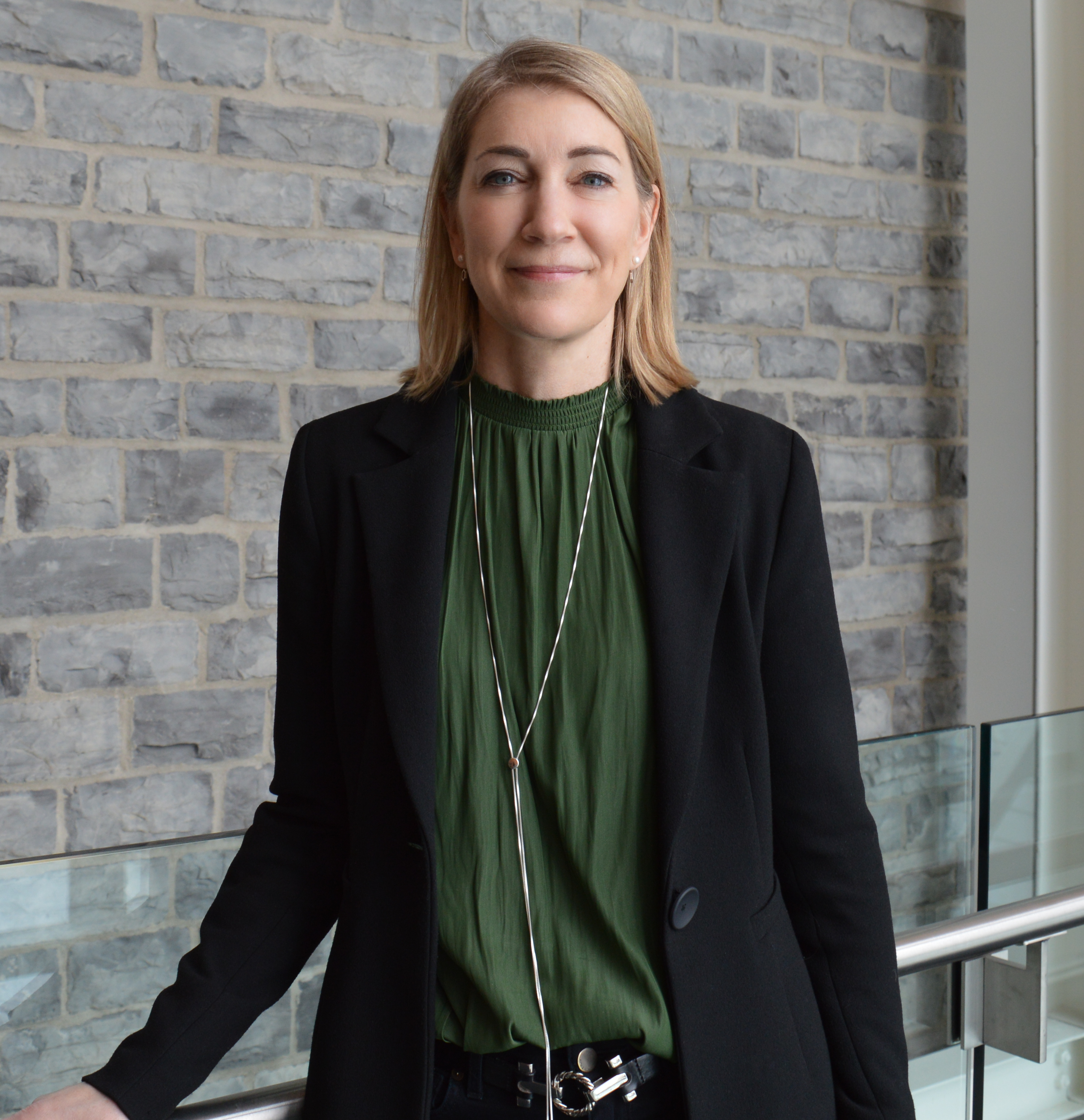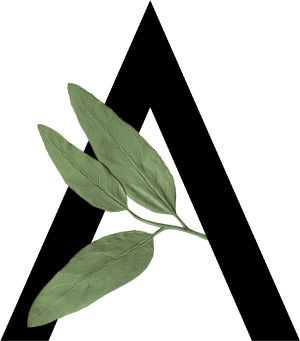Ambassador’s Portrait: Dominique Laflamme

Can you tell us about your career?
Holder of a Bachelor’s degree in Business Administration from Université Laval, I started my career for TD Bank in commercial credit, in Montréal. Right in the midst of an economic recession, I had to quickly learn to make my place as a young woman in a man’s world and especially, to make myself a shield. After several months going back and forth on the 20[1] to see my new boyfriend, I returned to Québec and I, with him, started a family. With two young children at home and a husband who constantly traveled, I thought it would be better, for a time, to trade the banking world for the life of an at-home mother. After a year of happiness with my two children, I felt the need for more stimulation and to rub shoulders with adults with other interests. I was convinced that my whole family would benefit from it, my children first.
I volunteered for two years at the Maison Dauphine, a community organization that helps street kids. I had been initiated to volunteering as a youth by my mother, who had created a mobile library for patients at the Hôpital du Saint-Sacrement. I would do rounds with her from time to time. Thus, it was natural for me to get involved in my community.
In the early 2000s, I took over the reins of the Musée du Fort, a family business founded by my father-in-law in 1965 and where, ironically, I had been a guide in my teens. Life is a spinning wheel … Through this job, I also made forays into the world of education thanks to Isabelle Duchesneau, General Manager of Le Monastère des Augustines, who gave me the thankless task of putting on her huge shoes as a teacher at Collège Mérici. What a show of confidence! After three years, I joined a marketing consultants’ company, then a known publishing company where I spent five extraordinary years with the blonde tornado Anne-Marie Boissonneault, who became a good friend and ambassador of Le Monastère des Augustines, moreover.
Today, I begin a new challenge at Lab-École, an organization founded by Pierre Thibault, Pierre Lavoie and Ricardo Larrivée. Its mission is to reinvent the physical environment of Québec’s future schools. Nothing less! A very stimulating project that I am proud to be a part of.
Along with all these jobs, I have always accepted to contribute to causes that are dear to my heart, including the Canadian Cancer Society, Valcartier Military Family Foundation, Musée de la Civilisation and, of course, Le Monastère des Augustines.
In telling the story of how I feel, it’s the desire to contribute and learn that motivates me, so I’m far from retirement!
What touches you in Le Monastère’s offer and what inspired you to become an ambassador?
The Soeurs de Jésus Marie accompanied me for a good part of my elementary and secondary education. At the time, they hardly taught anymore, but we still felt their benevolent presence by our side. The first time I came to Le Monastère and met the Augustinian Sisters, I felt the same comforting welcome as from my childhood. For me, they embody strength and gentleness at the same time. Every time I come to Le Monastère des Augustines, I feel good.
Le Monastère’s project touched me from the beginning. These women who came here in difficult conditions, took care of our bodies and our souls and contributed to the development of medicine. Three hundred years later, they faced their greatest challenge. The dramatic decline of their community was jeopardizing their future. And they had the courage and openness to give their heritage to the population, while ensuring the sustainability of their mission through a promising project. Joining a group of women ambassadors, determined that this mission continues in accordance with the sisters’ wishes, and supported by a team of workers, volunteers and caregivers, is a real privilege for me.
What are donation and philanthropy for you, and how do you apply them in your life?
When we talk about philanthropy, we often think of volunteering. Quebeckers are champions in this area. However, in terms of cash donations, we are doing poorly. And this is a message I would like to share. We must also give money to change the causes. When I worked at Maison Dauphine, we were fortunate to have a lot of people who wanted to give their time. But youth issues had become so complex that what we needed was to hire professionals to do it, but we did not have the money. This does not diminish the crucial importance of volunteers in organizations, but we must also consider contributing financially, to the best of our ability, to organizations that have been disengaged by the government in their funding in recent years. There must be a balance between giving oneself and giving money to adequately meet the needs of organizations.
Philanthropy has always been present in my life. I believe that the values that define it must be instilled in early childhood. To give back is for me a way of saying thank you for the luck that I had and as long as I can, it is with happiness that I will give.
What was the most memorable moment of your life?
There are plenty, including the birth of my two children, who would be angry if I did not mention it. It is a great pleasure for me to see them become citizens of the world. Another highlight is probably the sudden death of my mother. She was diagnosed with Parkinson’s around her 50th birthday. A nice present! She lived with the disease with dignity, never losing her sense of humor, and this, for twenty years. Despite the drama of her unexpected departure, I am grateful that her life ended as she wanted it to.
What are you passionate about?
The word passion used in this sense is for me, a little overused. I prefer to talk about what drives me and inspires me in life. I would say that in general, both in my professional and personal life, it is people’s stories. Whether extraordinary or from everyday life, whether touching or funny, good stories fill me with happiness.
If you could go back in time, what message would you deliver to the 20-year-old you were?
I would tell her two things: do not be afraid and keep laughing. During my life, I had all kinds of fears: fear of the dark when I was little, fear of ridicule when I was a teenager, fear of making mistakes in my adult life. With the years and experience, I have learned to go for it by putting into perspective the magnitude of the worst thing that could happen to me. And this worst consequence never really materialized so I think I lost a lot of energy for nothing.
And laughter is so good for your health. It plays things down, relaxes, it is a gateway to others. In addition, for me, having a sense of humor and self-deprecating skills are effective ways of staying young!
A quote that inspires you?
“Life is not waiting for thunderstorms to pass, it’s learning to dance in the rain.” I have no idea who wrote it, but I think it defines me well. When an obstacle arises or a problem comes up, I must act, put myself in a positive mode! I’m not the type of person to sweep problems under the rug and believe the problem will disappear. I’m not saying this has always worked in my favor, because I also know that sometimes “time fixes things.”
When you want to relax, what do you do?
It’s rare that I say to myself: “Now, I have to relax.” Spontaneously, I will play music, play sports, read a good book or watch a movie; the classic stuff basically. But when I think about it, talking on WhatsApp with my children who are far away, remaking the world on the phone with my sister, or training with my gang of girls on Tuesdays and Thursdays are other equally rewarding sources of relaxation.
What are your next challenges?
My challenge for the next few years will be to remain relevant and useful, through the years that go by. More concretely, my next challenge will be to make a difference in my new job and to try to have an impact, however small or indirect, in the academic success of young people.
Interview by Isabelle Houde
[1] Meaning Highway 20 (editor’s note)
